Related Research Articles
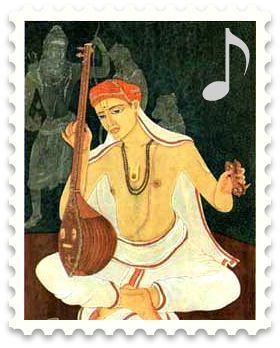
Owing to India's vastness and diversity, Indian music encompasses numerous genres in multiple varieties and forms which include classical music, folk, rock, and pop. It has a history spanning several millennia and developed over several geo-locations spanning the sub-continent. Music in India began as an integral part of socio-religious life.

Bihu is of three types and it is an important cultural festival unique to the Indian state of Assam – 'Rongali' or 'Bohag Bihu' observed in April, 'Kongali' or 'Kati Bihu' observed in October or November, and 'Bhogali' or 'Magh Bihu' observed in January. The festivals present an admixture of Tibeto-Barman, Austroasiatic and Indo-Aryan traditions entwined so intricately that it is impossible to separate them—festivals which are uniquely Assamese to which all communities of Assam had contributed elements. The Rongali Bihu is the most important of the three, celebrating spring festival. The Bhogali Bihu or the Magh Bihu is a harvest festival, with community feasts. The Kongali Bihu or the Kati Bihu is the sombre, thrifty one reflecting a season of short supplies and is an animistic festival.
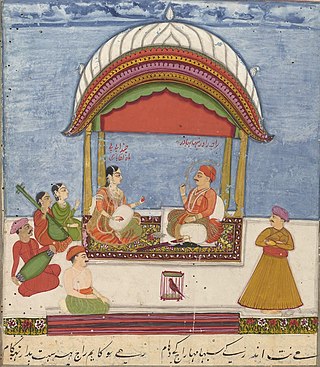
A tawaif was a highly successful courtesan, dancing girl or female entertainer who catered to the nobility of the Indian subcontinent, particularly during the Mughal era. Many tawaifs were forced to go into prostitution due to a lack of opportunities by the time of the British Raj.
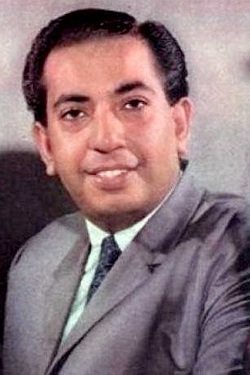
Mahendra Kapoor was an Indian playback singer. In a long career spanning decades, his repertoire included popular songs such as Chalo ekbaar phir se Ajnabi ban jayen hum dono (Gumrah) and Neele Gagan ke tale (Hamraaz). His name however became most closely associated with patriotic songs including Mere Desh Ki Dharti in Manoj Kumar's film Upkaar. He considered Mohammad Rafi as his Guru. In 1972, he was awarded the Padma Shri by the Government of India. He lent his voice to actor Manoj Kumar in most of his films and had a lengthy association with director-producer Baldev Raj Chopra.

Ravi Shankar Sharma, often referred to mononymously as Ravi, was an Indian music director, who had composed music for several Hindi and Malayalam films.
Sabiha Sumar is a Pakistani filmmaker and producer. She is best known for her independent documentary films. Her first feature-length film was Khamosh Pani , released in 2003. She is known for exploring themes of gender, religion, patriarchy and fundamentalism in Pakistan.

Indian classical dance, or Shastriya Nritya, is an umbrella term for different regionally-specific Indian classical dance traditions, rooted in predominantly Hindu musical theatre performance, the theory and practice of which can be traced to the Sanskrit text Natya Shastra. The number of Indian classical dance styles ranges from six to eight to twelve, or more, depending on the source and scholar; the main organisation for Indian arts preservation, the Sangeet Natak Academy recognizes eight: Bharatanatyam, Kathak, Kuchipudi, Odissi, Kathakali, Sattriya, Manipuri and Mohiniyattam. Additionally, the Indian Ministry of Culture includes Chhau in its list, recognising nine total styles. Scholars such as Drid Williams add Chhau, Yakshagana and Bhagavata Mela to the list. Each dance tradition originates and comes from a different state and/or region of India; for example, Bharatanatyam is from Tamil Nadu in the south of India, Odissi is from the east coast state of Odisha, and Manipuri is from the northeastern state of Manipur. The music associated with these different dance performances consists many compositions in Hindi, Malayalam, Meitei (Manipuri), Sanskrit, Tamil, Odia, Telugu, and many other Indian-Subcontinent languages; they represent a unity of core ideas, and a diversity of styles, costumes and expression.

Dance in India comprises numerous styles of dances, generally classified as classical or folk. As with other aspects of Indian culture, different forms of dances originated in different parts of India, developed according to the local traditions and also imbibed elements from other parts of the country.
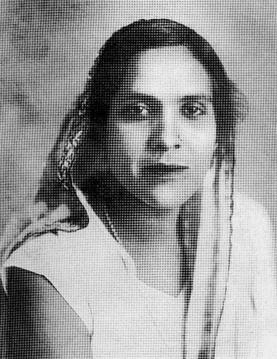
Jaddanbai Hussain was an Indian singer, music composer, dancer, actress, filmmaker, and one of the pioneers of Indian cinema. She along with Bibbo and Saraswati Devi was one of the first female music composers in Indian cinema. She was the mother of Akhtar Hussain, Anwar Hussain, and the well-known Hindi actress Nargis, and maternal grandmother of Priya Dutt and Sanjay Dutt.

Khamoshi: The Musical is a 1996 Indian Hindi-language romantic drama musical film. The film was directed by Sanjay Leela Bhansali in his directorial debut. The film stars Nana Patekar, Salman Khan, Manisha Koirala and Seema Biswas. The film was a debut of Sanjay Leela Bhansali as a filmmaker. A box office bomb when released, the film has over the years gained cult following and cited as one of the best films of Hindi cinema.

David Abraham Cheulkar, popularly known as David, was an Indian Hindi film actor. In a career spanning four decades, he played mostly character roles, starting with the 1941 film Naya Sansar, and went on to act in over 110 films, including memorable films such as Gol Maal (1979), Baton Baton Mein (1979) and Boot Polish (1954), for which he was awarded the 1955 Filmfare Best Supporting Actor Award.

Kaagaz Ke Phool is a 1959 Indian Hindi-language romantic drama film produced and directed by Guru Dutt, who also played the lead role in the film along with Waheeda Rehman. It is the first Indian film in CinemaScope and the last film officially directed by Dutt. It marked a technical revolution in Indian cinematography and is widely considered to be ahead of its time.

Mujra is a dance performance by women in a format that emerged during Mughal rule in India, where the elite class and local rulers like the nawabs of the Indian society used to frequent tawaifs (courtesans) for their entertainment.

Rasoolan hussain was a leading Indian Hindustani classical music vocal musician. Belonging to the Benaras gharana, she specialized in the romantic Purab Ang of the Thumri musical genre and tappa.
Saba Dewan is an Indian documentary film maker based in New Delhi. Her films are based on sexuality, gender, identity, communalism and culture. Her notable works include Dharmayuddha, Nasoor, Khel, Barf and Sita's Family (2001). She is best known for her trilogy on stigmatized female performers, Delhi-Mumbai-Delhi (2006), Naach and The Other Song (2009). She has written her first book "Tawaifnama" which has emerged from her trilogy on dancing girls. It is a well researched book on "tawaif (courtesans) living in banaras and Bhabhua. It is multi-generational chronicle first published in 2019.
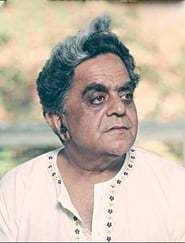
Manmohan Krishna was a popular Indian film actor and director, who worked in Hindi films for four decades, mostly as a character actor. He started his career as a professor in Physics and held master's degree in physics. He anchored the radio show Cadbury's Phulwari, a singing contest. Many people don't know that Manmohan Krishna sang his first song, 'Jhat khol de' in Afsar (1950), a Dev Anand film with music by S.D. Burman.

Suman Ghosh is a film director, and a professor of economics at Florida Atlantic University.

The Cinema of Manipur is the film industry based in Manipur, India. It includes not only Meitei language movies but all the films made in different languages of the different communities in Manipur. The Manipuri film industry was born when Matamgi Manipur by Debkumar Bose was released on 9 April 1972. From Aribam Syam Sharma's Paokhum Ama, the first colour Manipuri film (1983), M.A Singh's Langlen Thadoi, the first full-length colour Manipuri film (1984), Oken Amakcham's Lammei, the first Manipuri digital film (2002), to Priyakanta Laishram's Oneness (film), the first Manipuri gay-themed film (2023), Manipuri cinema, which celebrated its 50th anniversary in 2022, has grown in both its form and culture.
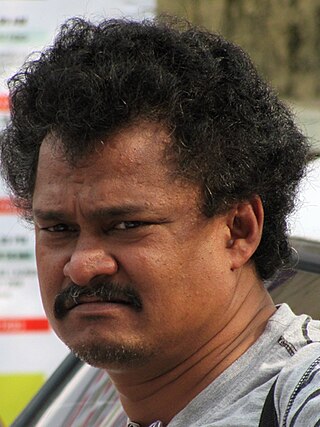
Anwar Ali, also known Anvar Ali, is an Indian poet and lyricist writing in Malayalam. He is also a literary editor and critic, translator, screenwriter, and documentary filmmaker.
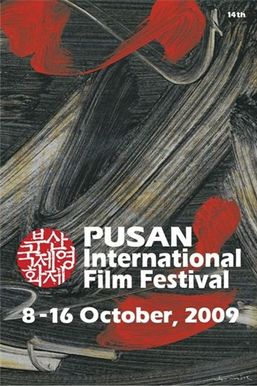
The 14th Busan International Film Festival was held from October 8 to October 16, 2009, in Busan, South Korea.
References
- ↑ Film screening The Hindu, 28 August 2009.
- ↑ "The Other Song | Magic Lantern Movies LLP". magiclanternmovies.in. Retrieved 23 April 2016.
- 1 2 Kapur, Jyotsna. "Film Review: The Other Song (Saba Dewan, 2009)". www.academia.edu. Retrieved 23 April 2016.
- ↑ "The Other Song". Open The Magazine. 13 June 2009. Retrieved 27 December 2023.
- ↑ "Busan International Film Festival". Busan International Film Festival.